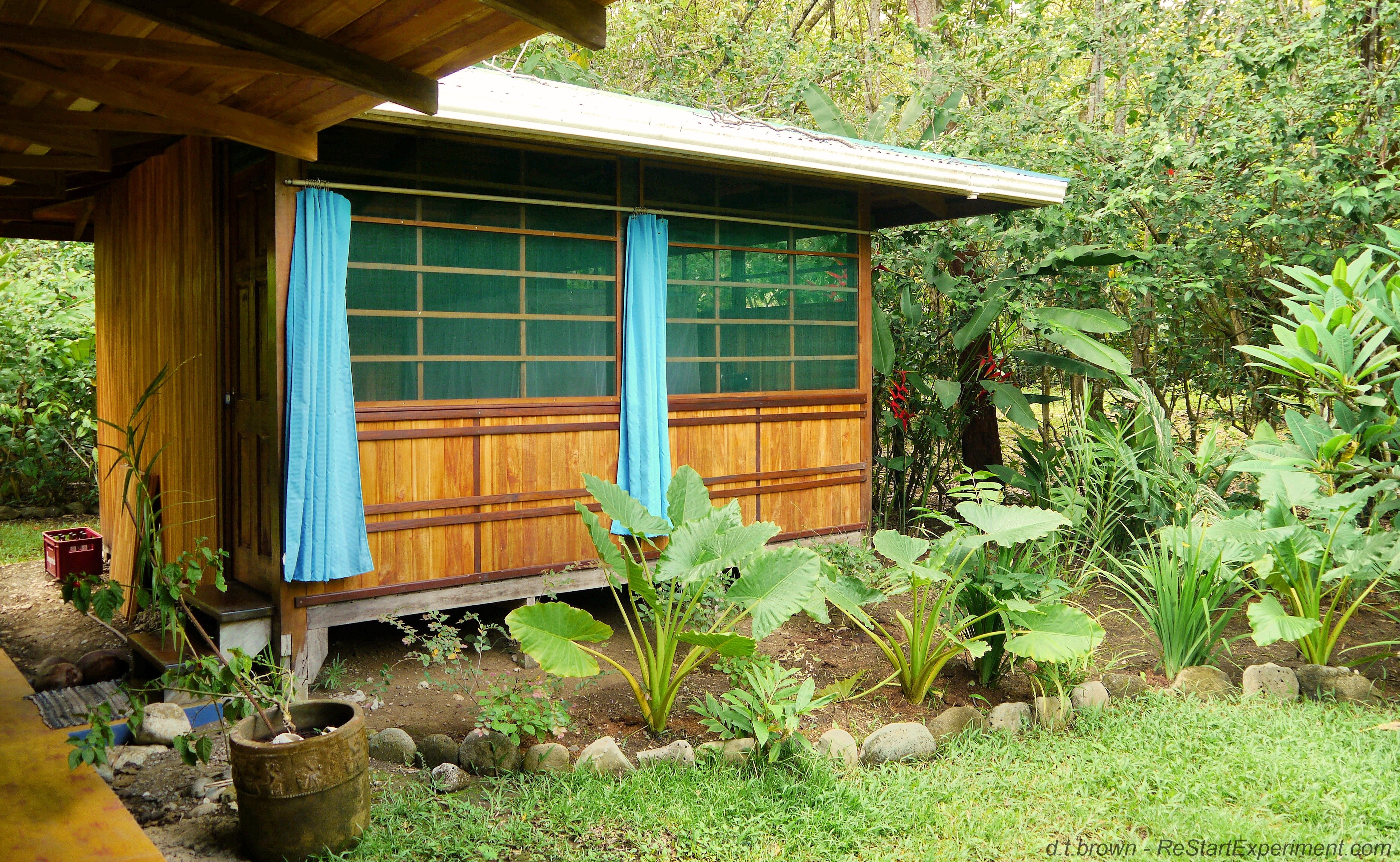Off grid living groups – Off-grid living groups represent a burgeoning movement of individuals seeking self-sufficiency and a closer connection with nature. These communities, diverse in their structures and motivations, share a common thread: a desire to live independently of traditional utilities and societal norms. From small, family-based units to larger, intentional communities, off-grid living presents unique challenges and rewards, demanding innovative solutions for resource management and social cohesion.
The appeal of off-grid living stems from a variety of factors, including a growing disillusionment with modern lifestyles, a desire for environmental stewardship, and a yearning for greater self-reliance. However, establishing and maintaining these communities requires careful planning, strong interpersonal skills, and a commitment to sustainable practices. This exploration delves into the complexities of off-grid living, examining the successes and struggles of these unique communities.
Defining Off-Grid Living Groups
Off-grid living groups represent a diverse spectrum of communities united by a shared commitment to self-sufficiency and independence from conventional infrastructure. These groups vary significantly in size, structure, and philosophy, reflecting the wide range of motivations and lifestyles embraced by their members. Understanding these variations is crucial to grasping the complexities and nuances of this growing movement.Off-grid living groups are motivated by a variety of factors, often interwoven and deeply personal.
Environmental concerns, a desire for greater self-reliance, a rejection of consumerism, and a yearning for simpler living are frequently cited reasons. Some groups are driven by spiritual or philosophical beliefs, seeking a closer connection with nature and a more intentional way of life. Others are motivated by economic factors, seeking to reduce living expenses or escape the pressures of modern society.
The common thread is a desire for greater control over their lives and a reduced dependence on external systems.
Types of Off-Grid Living Groups
The diversity within off-grid living groups is striking. Some are small, family-based units striving for complete autonomy on a relatively small scale. Others are larger, intentional communities built on shared resources and cooperative living arrangements. Some groups focus on sustainable agriculture, while others prioritize renewable energy generation or craft-based skills. Certain groups embrace technological minimalism, while others integrate appropriate technologies to enhance their self-sufficiency.
The specific composition and focus of each group reflects the individual values and goals of its members.
Motivations for Joining Off-Grid Living Groups
Individuals are drawn to off-grid living for a variety of reasons. A growing concern for environmental sustainability motivates many to seek a lower-impact lifestyle. Others are driven by a desire for greater economic independence, aiming to reduce reliance on traditional employment and market systems. A significant number find fulfillment in the challenge of self-reliance, mastering skills such as gardening, construction, and energy production.
Furthermore, the appeal of community and shared values attracts those seeking a more connected and intentional way of life, finding solace in a sense of belonging and mutual support. This desire for a slower pace of life, free from the pressures of modern society, is another compelling factor.
Finish your research with information from off grid living nicole.
Common Characteristics and Organizational Structures
While diverse, off-grid living groups share several common characteristics. A strong emphasis on self-sufficiency is paramount, often involving the production of food, water, and energy. Many groups prioritize sustainable practices, aiming to minimize their environmental footprint. A reliance on renewable resources, such as solar and wind power, is common. Group dynamics and organizational structures vary widely.
Some are loosely structured, relying on consensus-based decision-making. Others employ more hierarchical systems, with designated leaders or roles. The level of communal sharing also varies, ranging from complete communal ownership to individually held property within a shared environment. Effective communication and mutual respect are crucial for the success and sustainability of any off-grid living group.
Economic Models and Sustainability: Off Grid Living Groups

Off-grid living, while romanticized, presents significant economic and sustainability challenges. The success of any off-grid community hinges on its ability to develop and maintain a viable economic model that supports its members while minimizing its environmental impact. Different approaches exist, each with its own strengths and weaknesses, and the long-term viability of these communities depends on a delicate balance between economic self-sufficiency and ecological responsibility.Different economic models are employed by off-grid communities, ranging from highly communal systems to more individualized approaches.
The choice often reflects the community’s values, size, and available resources. Long-term sustainability requires careful consideration of both economic and environmental factors, demanding a flexible and adaptable strategy.
Economic Models in Off-Grid Communities
A spectrum of economic models exists within off-grid communities. At one end lies the completely communal model, where resources and labor are shared equally among members. This fosters strong social bonds but can present challenges in terms of individual motivation and resource allocation. Conversely, some off-grid groups operate on a more individualized basis, with each member responsible for their own economic well-being.
This model allows for greater individual autonomy but may lead to disparities in wealth and resource access within the community. A hybrid approach, combining elements of both communal sharing and individual contribution, is often seen as a more balanced and sustainable solution. This might involve shared resources for essential needs like water and infrastructure, while individual members manage their own production and trade of goods and services.
Long-Term Sustainability of Off-Grid Living Groups
The long-term sustainability of off-grid communities is intrinsically linked to their ability to meet both their economic and environmental needs. Economically, self-sufficiency is key, minimizing reliance on external markets and reducing vulnerability to economic fluctuations. This often involves diversifying income streams, such as through farming, crafts, and renewable energy production. Environmentally, sustainable practices are paramount. This includes minimizing waste, utilizing renewable resources, and preserving biodiversity.
Communities failing to address both these aspects face an increased risk of collapse. For example, a community relying solely on a single cash crop is vulnerable to crop failure or market fluctuations. Similarly, a community that over-exploits its natural resources will face long-term environmental degradation and resource scarcity.
Examples of Successful Off-Grid Communities and Their Strategies
Several off-grid communities have demonstrated remarkable resilience and long-term sustainability. The intentional community of Los Angeles, California, is one example of a successful off-grid living group. The community uses a combination of permaculture, solar energy, and communal decision-making to manage their resources. They have successfully integrated agriculture, renewable energy, and skill-sharing to achieve economic stability and environmental sustainability. Their success is attributable to a strong emphasis on community collaboration and resource management, combined with a focus on sustainable agricultural practices.
Another example could be found in certain eco-villages in Europe, where a mixture of communal farming, craft production, and eco-tourism generates income while simultaneously preserving the natural environment. These communities often emphasize skill-sharing and mutual support, fostering a strong sense of community and resilience. Their success highlights the importance of diversifying income streams and embracing sustainable practices.
Legal and Regulatory Aspects

Establishing an off-grid community involves navigating a complex web of legal and regulatory hurdles. The challenges vary significantly depending on location, the scale of the community, and the specific activities undertaken. Understanding these legal considerations is crucial for the success and longevity of any off-grid endeavor.Land ownership forms the bedrock of any off-grid community. Securing suitable land often involves purchasing property outright, leasing land, or entering into complex arrangements with landowners.
Building permits, zoning regulations, and environmental impact assessments are other significant legal obstacles. Many jurisdictions have strict rules regarding building codes, water usage, waste disposal, and access to utilities, often posing significant challenges to off-grid lifestyles which prioritize self-sufficiency and minimal environmental impact.
Land Ownership and Acquisition
Acquiring land for an off-grid community presents unique challenges. Purchasing large tracts of land can be expensive, and finding suitable locations that meet the community’s needs—such as access to water and suitable terrain—can be difficult. Some communities may explore alternative models like communal land ownership or cooperative agreements with existing landowners. Thorough due diligence is critical to ensure that the land is free from encumbrances and that the acquisition process complies with all applicable laws.
Failure to properly navigate land acquisition can lead to significant legal disputes and financial losses. For example, a community might face eviction if they fail to secure proper ownership or leasing agreements.
Building Permits and Zoning Regulations, Off grid living groups
Most jurisdictions require building permits before construction can begin. Off-grid communities often face stricter scrutiny due to their unconventional building methods and desire for self-sufficiency. Zoning regulations can further restrict the type and size of structures that can be built, the density of housing, and the use of land. Compliance with building codes is paramount to avoid legal penalties and ensure the safety of community members.
Communities might need to engage architects and engineers familiar with off-grid construction to navigate these regulations effectively. A community attempting to build without permits could face fines, stop-work orders, or even demolition of structures.
Environmental Regulations and Impact Assessments
Environmental regulations are a crucial aspect of establishing an off-grid community. Activities like water extraction, waste disposal, and land clearing often require permits and compliance with environmental protection laws. Environmental impact assessments may be necessary to demonstrate that the community’s activities will not negatively affect the environment. Failure to comply with these regulations can lead to significant fines and legal action.
For instance, improper waste disposal can result in environmental contamination and legal liability. A thorough understanding of local environmental laws is crucial for mitigating potential risks.
Successful Navigation of Legal Frameworks
Several off-grid communities have successfully navigated legal frameworks by proactively engaging with local authorities, demonstrating environmental responsibility, and adhering to relevant regulations. They often work collaboratively with local officials to develop solutions that balance the community’s needs with environmental protection and public safety concerns. For example, some communities have worked with local governments to establish custom zoning regulations that accommodate their unique needs.
Others have successfully secured variances or exemptions from certain regulations by demonstrating that their practices are environmentally sound and do not pose a public health risk. Open communication and a willingness to compromise are key to navigating the legal landscape successfully.
Ultimately, the success of off-grid living groups hinges on a delicate balance between individual autonomy and collective responsibility. While the challenges are significant, the potential rewards – increased self-sufficiency, stronger community bonds, and a reduced environmental footprint – attract a growing number of individuals seeking a different way of life. The continued evolution of technology and the growing awareness of environmental concerns will likely shape the future of these communities, offering both opportunities and new challenges to overcome.



